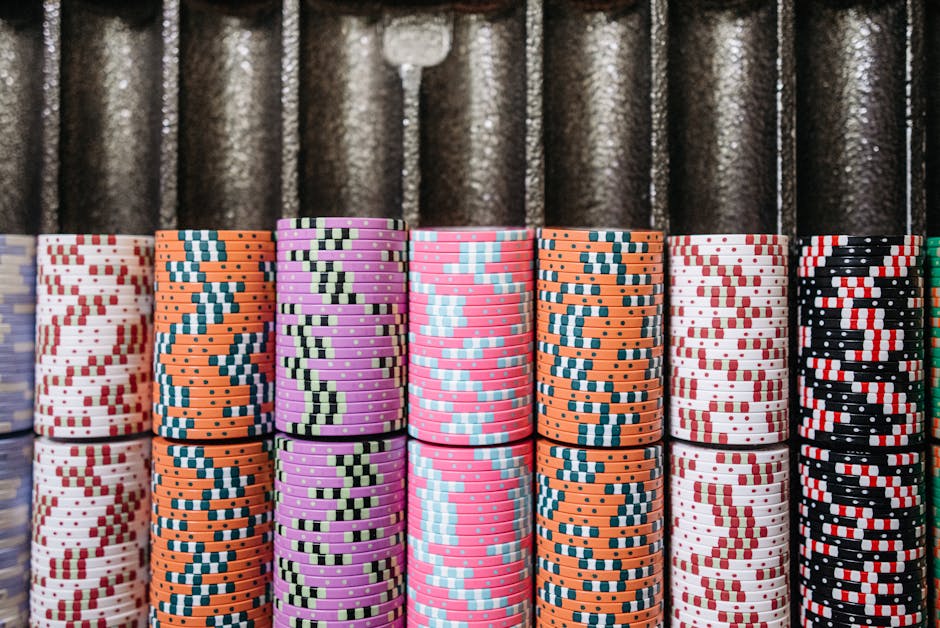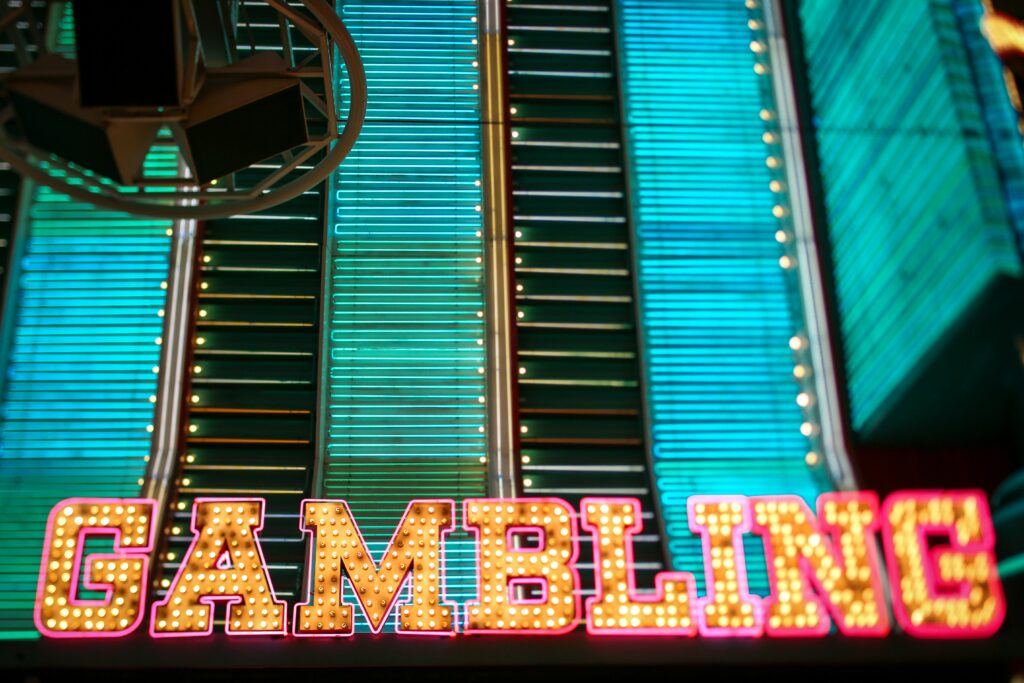Why Responsible Gambling Matters
At its core, gambling is supposed to be fun. A bit of risk, a rush of chance—but nothing more. It’s not a business model, and it shouldn’t be a backup plan for your bills. When entertainment turns into expectation, the problems start stacking fast.
The risks are real. Financial strain is the most obvious red flag, but it rarely travels alone. Chasing losses, drained savings, credit cards maxed out—all that can spark deeper damage: anxiety, depression, even fractured relationships. People don’t just lose money when they gamble recklessly—they lose peace of mind, stability, and sometimes themselves.
That’s why responsible gambling isn’t just a nice idea—it’s the baseline. It’s about self-awareness. About keeping control, not handing it over. Knowing where the line is, and refusing to cross it. You can have fun and stay sharp at the same time—if you approach the game with boundaries, not blind hopes.
Set Clear Limits
Gambling without limits is asking for trouble. Start by setting a budget—before you place a single bet. This isn’t about how much you hope to win; it’s about how much you’re okay with losing. Define that number and stick to it. Once it’s gone, you’re done. No top-ups, no chasing it back.
Next up: time. Gambling can burn hours fast if you’re not looking. Set a timeframe before you jump in. Whether it’s 30 minutes or an hour, knowing when to stop keeps your day—and your head—intact.
Most platforms offer safety tools. Make use of them. Deposit limits make sure you don’t overspend, and cooldown periods give you space to reset. Use them like seatbelts on a fast ride—they won’t stop the game, but they’ll keep it from going off the rails.
Know the Game
Before you place a single bet, know what you’re up against. Gambling isn’t random chaos—it’s a system, and every game has rules, odds, and built-in mechanics that work in the house’s favor. That’s called the house edge, and it’s not just a rumor. It’s the real math behind why the casino often wins in the long haul.
Slot machines, for example, have some of the highest house edges and most volatile payouts. That thrilling jackpot could be a thousand spins away. Meanwhile, games like blackjack or poker offer better odds—if you actually know how to play them well.
Take time to learn the rules inside and out. Watch how-tos. Read basic strategy guides. Practice for free if you can. Otherwise, you’re not gambling—you’re just handing over money while hoping you get lucky.
Long-term success comes down to knowledge, not blind chance. So get smart before you get started.
Recognize the Warning Signs
When betting stops being fun and starts feeling like a compulsion, it’s time to pay attention. One of the biggest red flags is chasing losses—betting more to try and win back money you’ve already lost. That rarely works. In fact, it often snowballs into more frustration and emptier pockets.
Another warning sign is bumping up how often you play or steadily increasing how much you bet. This kind of escalation can feel subtle at first, but it adds up—and not in your favor. If you start hiding how much, how often, or even the fact you’re gambling from friends or family, that’s not just privacy; it’s a signal that something’s off.
Worst of all, if you reach a point where it feels like you have to play—like skipping a session makes you tense or uneasy—that’s a red line. Gambling shouldn’t feel like a need. That’s when pulling back isn’t optional—it’s necessary.
Know the signs. Listen to them.
Make Use of Support Tools
If gambling starts feeling routine—or worse, like a reflex—you’ve got options to rein it in. Most major gambling platforms now offer self-exclusion features. Use them. You can shut yourself out for a week, a month, even permanently. It’s not dramatic. It’s responsible.
Reality checks are another quiet but powerful feature. These are timed reminders that pop up while you’re playing, nudging you to pause and reassess. Combined with time tracking, they help break the trance. You’ll know exactly how long you’ve been at it—which, in turn, makes it harder to kid yourself.
Want to track the bigger picture? There are apps that monitor your play patterns, spending, and time across different sites. Think of them as fitness trackers, but for your gambling habits. The clearer the data, the better your choices.
These tools don’t exist to shame you. They’re guardrails. Use them early, often, and without guilt.
Keep Perspective
Responsible gambling requires a grounded mindset. It’s easy to get caught up in the excitement or frustration of losses, but maintaining perspective is what keeps gambling healthy.
Losses Are a Normal Part of the Experience
- Every game has a built-in advantage for the house—there are no guaranteed wins.
- Accept that losing is part of the game and not something to “make back.”
- Doubling down on losses often leads to deeper financial and emotional setbacks.
Gambling Is Not an Income Strategy
- Treat gambling as entertainment, not a source of income.
- The odds are never in favor of depending on it for financial gains.
- Relying on wins to pay bills or solve financial issues is a warning sign.
Real Life Comes First
- Make sure your personal, professional, and financial responsibilities come before any gambling activity.
- Missing work, neglecting family, or skipping payments to fund a bet is a sign it’s time to reevaluate.
- Create boundaries so your gameplay never compromises your daily life.
Keeping perspective is what separates enjoyable play from reckless behavior. Stay aware, stay grounded, and make sure you’re always in control.
Take Breaks
Pause to Protect Your Judgment
Taking regular breaks during gambling sessions isn’t just a suggestion—it’s a strategy. When you’re too immersed, it’s easy to lose track of time, money, or emotional control. Stepping away gives you a mental reset that leads to better decisions.
- Avoid impulsive bets by introducing space between sessions
- Set regular timers or use platform reminders to cue a break
- Even a five-minute walk can help you regain clarity
Schedule No-Gamble Days
Gambling responsibly also means giving your mind time to recharge. By designating certain days or hours as completely gambling-free, you reduce the risk of developing unhealthy patterns.
- Choose daily or weekly time slots that are completely off-limits for gambling
- Use this time on other fulfilling activities: hobbies, exercise, socializing
- Treat breaks as a routine part of your play, not a punishment
Breaks Build Long-Term Success
Regular breaks are one of the simplest, most effective ways to stay in control of your gambling habits. They help you:
- Keep your spending in perspective
- Avoid emotionally-driven decisions
- Sustain your enjoyment without letting it become a problem
Never Gamble Under the Influence
If your judgment’s off, your money’s at risk. Gambling while drinking, or when you’re angry, sad, or stressed, is a shortcut to bad decisions. Alcohol dulls your instincts. Emotional distress clouds your reasoning. Combine the two and you’re playing without brakes.
The smartest move? Only gamble when your head is clear. When you’re calm, focused, and not chasing a distraction or escape. A steady mind makes better choices—and better choices keep things fun and in control. If you’re using gambling to cope, it’s time to hit pause, not place a bet.
Know Where to Get Help
If gambling starts feeling overwhelming, you’re not alone—and you’re not out of options. National helplines, counseling services, and online resources are there for a reason. These aren’t last resorts—they’re early interventions.
Reaching out doesn’t mean you’ve lost control. It means you’re stepping up to keep it. Whether it’s a quick conversation with a trained advisor or joining a forum with people in the same boat, support is a tool—not a weakness.
Responsible gambling isn’t just about ticking boxes—it’s about building a mindset. And that mindset gets stronger when backed by community. The healthiest players know when to ask for help and how to stay connected. If you want to stay in the game long-term, knowing where to get help is part of playing it smart.
Final Thoughts
Gambling can be a good time—if you stay in control. The goal isn’t to turn a profit, prove something, or chase a win that slipped away last week. It’s to enjoy the game, not let it mess with your stability. That’s the line: if it starts costing you peace, money you can’t spare, or time you should be spending elsewhere, it’s time to reset.
Putting a few guardrails in place makes all the difference. Know your limits. Stick to them. And take a break before the game stops feeling like a game.
If you want proven tools, smarter habits, and expert guides, check out GambleHubZone.
Stay sharp, play smart, and walk away on your own terms.




